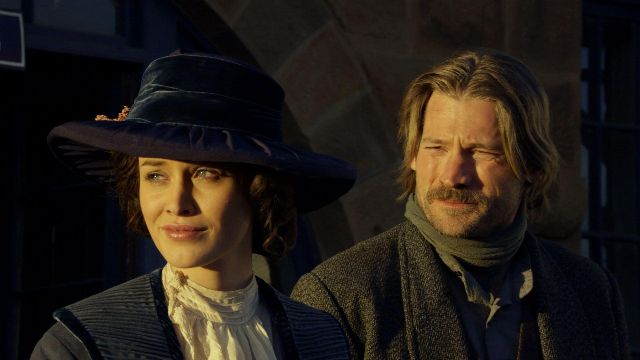Blackthorn (2011) 
“Sam Shepard is Butch Cassidy”

Director: Mateo Gil
Cast: Sam Shepard, Eduardo Noriega, Stephen Rea
Synopsis: In Bolivia, Butch Cassidy (now calling himself James Blackthorne) pines for one last sight of home, an adventure that aligns him with a young robber and makes the duo a target for gangs and lawmen alike.
It’s 1927, nineteen years on from the supposed death of Butch Cassidy (Sam Shepard), together with his partner The Sundance Kid (Padraic Delaney), at the hands of the Bolivian army. Cassidy now lives a simple, if typically unconventional, life as James Blackthorn, a modest horse rancher deep in the Bolivian countryside. Sharing his bed with attractive housekeeper Yana (Magaly Solier), who nevertheless insists on calling him Mr James, Blackthorn leads an otherwise solitary life and, as he relates in letters to the son of Etta Place (who may or may not be his own son) longs for one last look at the old country. As Blackthorn/Cassidy says: ‘there are only two significant events in a man’s life: when you leave home and when you go back. Everything else is just the middle.’
Blackthorn’s plans to return home go almost immediately awry when, having withdrawn his entire savings, he is ambushed by Eduardo Apodaca (Eduardo Noriega). When Blackthorn’s horse – and his savings – run off into the desert, Eduardo bargains for his life by revealing he has stolen $50,000 from a feared mine owner and is returning to a disused mine to collect the money whilst also trying to evade capture by the mine owner’s posse. Against his better judgment, Blackthorn reluctantly agrees to fall in with Eduardo in return for a half-share of his booty.
An arguable benefit of the near-death of a genre is that new movies within that genre usually need to be of superior quality in order to attract the interest of potential backers – unless they’re artlessly bolted onto another genre like some Frankenstein‘s monster as was the case with the same year’s Cowboys and Aliens. Mateo Gil’s Blackthorn stands as a typical example of the kind of intelligent, faintly melancholic work that finds its way to the screen purely on its own merits, rather than for any targeted financial reasons.
Sam Shepard gives a note-perfect performance as an ageing Butch Cassidy whose subsequent reclusive existence cannot erase the memories of an earlier life. He’s living on borrowed time, and because of this his life revolves around that former life, depicted in flashback in order to provide the audience with some insight into the reasons why he takes up with the ambiguous character of Eduardo Apocada. Despite these flashbacks, it’s the famous movie from 1969 that serves as the touchstone for much of what takes place here. As in that movie, our two protagonists are pursued by a posse for much of its running time. However, in Blackthorn the posse doesn’t remain faceless for long, and so loses its sense of menace before eventually triggering a moment of revelation for Blackthorn which abruptly alters his self-perception and calls into question the perceived differences between himself and Apocada. After all, self-delusion is an easy trap to fall into when your victims don’t have faces…
Blackthorn ultimately becomes a study of loneliness – undoubtedly, one of the reasons Blackthorn takes up with Eduardo is because of his resemblance to Delaney’s Sundance – and of the burden living as a legend bestows upon its recipient. Blackthorn’s life has been forever coloured by his past, and loneliness is the price he has to pay. Stephen Rae’s former Pinkerton office McKinley, representing justice and the law, suffers an even harsher fate than Cassidy because of his failure to make the former outlaw pay for his crimes. The slow, deliberate pace with which Gil reveals the true consequences of Cassidy’s life – as opposed to the freewheeling harmlessness of George Roy Hill’s 1969 take on the legend – lends the story an elegiac quality which reflects not only an individual’s yearning for a past that has long since passed out of his reach, but also that of a nation which can look back and identify the beginnings of its fall from grace.
httpv://www.youtube.com/watch?v=5tDoU-FqGU4
